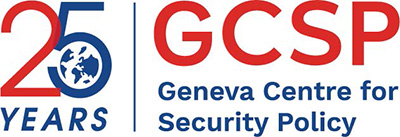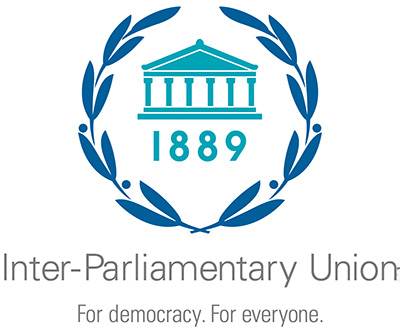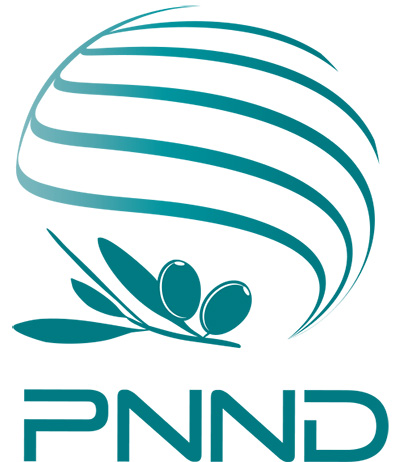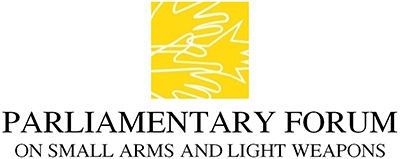Relevant international and regional agreements:
International:
- United Nations Programme of Action to Prevent, Combat and Eradicate the Illicit Trade in Small Arms and Light Weapons in All Its Aspects (PoA), 2001
- Protocol against the Illicit Manufacturing of and Trafficking in Firearms, their Parts and Components and Ammunition (Firearms Protocol), 2001
Regional:
- Nairobi Protocol for the Prevention, Control and Reduction of Small Arms and Light Weapons in the Great Lakes Region and the Horn of Africa (Nairobi Protocol), 2004
- SADC Protocol on the Control of Firearms, Ammunition and Other Related Materials (SADC Protocol), 2004
- ECOWAS Convention on Small Arms and Light Weapons (ECOWAS Convention), 2006
- Bamako Declaration on an African Common Position on the Illicit Proliferation, Circulation and Trafficking of Small Arms and Light Weapons (Bamako Declaration), 2000.
- African Union Master Roadmap of Practical Steps to Silence the Guns in Africa by Year 2020 (Lusaka Master Roadmap), 2016
- Kinshasa Convention (on control of small arms and light weapons in Africa), 2010
- Inter-American Convention on Firearms, 1997
Recommendations:
Parliamentarians can:
- Review and propose amendments to current SALW related legislation;
- Call on their government to submit full reports to the UN PoA and ATT, emphasising the importance of transparency as a tool of building trust amongst countries;
- Exercise the oversight function vis-à-vis the government, focusing on the implementation of relevant conventional arms control instruments;
- Consult relevant authorities on the implementation of national SALW policies, in particular follow up with national SALW commissions, where existent;
- Actively promote and participate in awareness-raising campaigns on the issue of SALW proliferation and misuse, putting an emphasis on reaching out to constituents from areas affected by SALW by promoting a comprehensive approach that safeguards public health;
- Support and engage in regional and international parliamentary efforts to exchange, analyse and formulate cross-regional SALW policies;
- Engage in dialogue with CSOs on possible policies to prevent and address SALW proliferation and misuse, including innovative awareness-raising initiatives and voluntary surrender programmes;
- Promote inclusion of parliamentarians in the international negotiations/conferences related to international SALW control instruments, in order to facilitate the bridging of knowledge and incorporation of international instruments from the international to the regional and national realm.
Examples of good parliamentary practice:
Argentina: National Programme for the Voluntary Surrender of Firearms, 2006
Following an incident in which a 15-year-old school boy opened fire at school near Buenos Aires, killing three classmates and injuring five, the Argentine Disarmament Network (RAD) was formed in 2004 in order to create a network for multiple civil society organisations working on armed violence. On December 20, 2006, Argentina’s Parliament adopted Ley 26.216, which establishes the National Programme for the Voluntary Surrender of Firearms. The Programme established a voluntary and anonymous gun and ammunition buyback. From 2007 to 2015, more than 300,000 guns and 1.3 million munitions were destroyed through the programme. These were paid by a special cheque created in collaboration with the Argentine National Bank to guarantee anonymity and build trust. As part of the Programme, a public awareness campaign on the risks of owning firearms and an 0-800 number for the answering of questions was also created. An innovative aspect of the Programme is that it classifies gun violence as a critical public health problem.
Brazil: Statute of Disarmament, Law No. 10,826/03, 2003
Brazil has a long history of gun violence. Today, it is among the countries with the most homicides in the world, registering almost 64,000 in 2018. Nearly three-quarters of homicides involve guns. In 2003, Brazil’s Congress passed the Statute of Disarmament, which introduced comprehensive reform of gun control legislation. A year later, then-President da Silva signed an additional decree on the Statute in 2004. The Statute established rules on gun ownership and carry permits, as well as creating a national firearms registry. As part of this overhaul, the first phase of a voluntary gun ‘buy-back’ scheme and amnesty ran from the July to December 2004 before being extended. The campaign resulted from a civil society initiative and was conducted in coordination with the Ministry of Justice and The National Arms Registry. In the first phase, ending October 2005, 495,855 small arms had been collected across Brazil as part of the campaign. One report mentions how this was the first time in 13 years that Brazil had seen a fall in the number of deaths caused by firearms – a drop in 8% from 2003.
In 2015, a measure to replace the 2003 statute and weaken gun control was stopped in Congress, but in 2019, the newly-elected President Bolsonaro signed a decree that loosened gun control in the country.
PARLATINO cooperation and Model Law 2008
On April 6-7, 2006, the Committee of Citizen Security, Combat and Prevention of Drug Trafficking, Terrorism and Organized Crime of the Latin American and Caribbean Parliament (Parlatino) decided to elaborate a Model Law on firearms and ammunition control in collaboration with the Brazilian Foundation Viva Rio, a member of the Latin American Coalition for the Prevention of Armed Violence (CLAVE), the Parliamentary Forum on Small Arms and Light Weapons and the Swedish Fellowship of Reconciliation. The Model law is available in English, French and Spanish. The aim was to provide Latin American parliaments with the groundwork for developing new laws to combat illicit arms trafficking and misuse of these deadly goods, with the main objective of making Latin America a more peaceful and secure region for its people.
This Model Law is the result of an intensive and participatory process hosted by Parlatino, which created a space for debate and exchange of views among parliamentarians committed to these issues, as well as civil society organisations and experts in the field. The Model Law has been used as a reference in legislative work in eight countries: Argentina, Bolivia, Guatemala, Dominican Republic, Haiti, Panama, Paraguay and Uruguay.
West Africa: ECOWAS Convention on Small Arms and Light Weapons, their Ammunition and other related Materials, 2006
In October 1998, members of ECOWAS (Economic Community of West African States) adopted the world’s first regional Moratorium on the Importation, Exportation and Manufacture of Light Weapons after concern for regional security. A regional approach was deemed the most appropriate method in the context as the proliferation of SALW poses a threat to peace and security in the region and facilitates cross-border crime. Most countries in the region do not manufacture weapons but import them.
Nonetheless, this moratorium was not legally binding and following discussions between Heads of State and governments, civil society and the EU, amongst others, the ECOWAS Convention on Small Arms and Light Weapons, their Ammunition and other Related Materials was adopted on June 14, 2006. Upon the ninth signature, the Convention entered into force and became a legally binding instrument in September 2009.
An important aspect of the Convention’s framework is the implementation and enforcement of policies and legislation against the proliferation of SALW and their ammunition at the national level as well as the harmonisation of legislation to fight against illicit transfers at the sub-regional and regional levels. Parliamentarians have a crucial role to play in this effort. The ECOWAS Parliament, a forum for dialogue, consultation and consensus among legislators from the ECOWAS region, has also been used to advance the goals of the Convention, including through workshops, debates and sharing best practises.
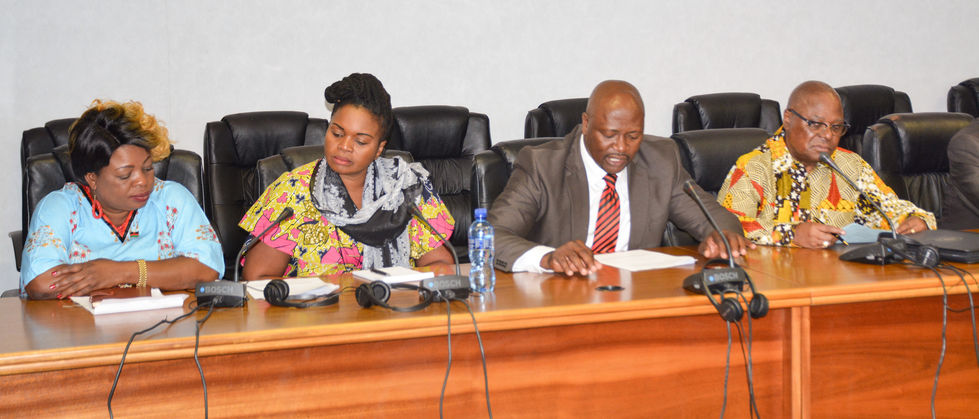
Australia: National Firearms Agreement and associated legislation, 1996
The National Firearms Agreement (NFA) was adopted in 1996 in response to the Port Arthur massacre that killed 35 people. The laws to give effect to the Agreement were passed by Australian State governments within 12 days of the massacre. The NFA places tight control on semi-automatic and fully automatic weapons, although permitted their use by licensed individuals who required them for a purpose other than ‘personal protection’. The act included a gun buy-back provision which resulted in more than 700,000 weapons being surrendered.
In the 18 years prior to the adoption of the agreement and implementing law, there had been 13 public mass shootings in Australia (using the definition of five or more people killed). In the 24 years since its adoption there have been none (although there was a family suicide/murder that involved the deaths of seven family members in 2018).
Burkina Faso: Addressing armed violence and illicit arms trafficking
Burkina Faso is amongst a number of African countries that has experienced moderately high rates of gun deaths (5 per 100,000 per year) and illicit arms trafficking. In 2010, a parliamentary network on Small Arms and Light Weapons (RPB/SALW) was established under the auspices of the Burkina Faso parliament. The initiative was proposed by former member of parliament Hon. Drissa Sanogo, who served as the first president of the network. The RPB/SALW was active in the negotiations in New York and Geneva on the ratification of the Arms Trade Treaty (ATT) by Burkina Faso in 2014, as well as in its implementation. This has included the creation of two government authorities for the control of small arms and light weapons, the National Commission for the Fight against the Proliferation of Small Arms (CN /PAL) and the High Authority for the Control of Imports of Arms and their Use (HACIAU). This has also included further ATT implementation regulations in 2019 (law no. 014-2019 /AN) and organisation of several training and awareness-raising workshops for officials, gunsmiths, traditional hunters (called Dozos) and public education professionals.
The Network of Burkina Faso parliamentarians on small arms and light weapons has enabled parliamentarians to participate in the Arms Trade Treaty and other international agreements, and ensured that these agreements are adopted and implemented in Burkina Faso. One result has been the considerable reduction in illicit trafficking of arms in Burkina Faso from 2010 to 2016. Unfortunately, since 2016, extremist expansion, violence and terrorism has led to over 1600 deaths, one million displaced people and has reversed many of the gains made by the adoption of the ATT.
Hon. Drissa SANOGO, Former Member of Parliament. Chairman of the Board of Directors of the Pan-African Network for Peace, Security and Development
Resources:
- Global Parliamentary Action Plan- Connecting the Dots, PFSALW 2018
- Parliamentary Action Plan, Latin America and the Caribbean, PFSALW, 2019
- Parliamentary Action Plan, Africa, PFSALW, 2019
- Parliamentary Action Plan, Middle East and North Africa MENA, PFSALW, 2019 (in English). Also available in Arabic.
- Regional Caribbean Port of Spain Plan of Action on Addressing the Illicit Trade in Small Arms and Light Weapons, PGA 2019
- Kuala Lumpur Plan of Action – Regional South and South East Asia Parliamentary Workshop Promoting Engagement of Women Parliamentarians in Addressing the Illicit Trade in Small Arms and Light Weapons, PGA 2020
- Parliamentary Handbook on Promoting Signature, Ratification and Implementation of the ATT, PGA and Control Arms.
- Parliamentary Tool Kit on the Arms Trade Treaty, PGA
- Small Arms and Children – Parliamentary handbook, PFSALW
- Small Arms and Violence against Women – Parliamentary handbook, PFSALW
- IPU Resolution: Cooperation and shared responsibility in the global fight against organized crime, in particular drug trafficking, illegal arms sales, trafficking in persons and cross-border terrorism, adopted by the 122nd IPU Assembly, Bangkok, April 2010
- IPU Resolution: The role of parliaments in strengthening the control of trafficking in small arms and light weapons and their ammunition, adopted by the 114nd IPU Assembly: Nairobi, May 2006
- From Policy Inertia to World Leader: Australia’s ‘Perfect Storm’ of Gun Control, by Philip Alpers and Zareh Ghazarian, 2019.
- UN Modular Small-arms-control Implementation Compendium (MOSAIC)
- Compendium of activities, findings and outcomes on the “Gun Violence and Illicit SALW-Control from a Gender Perspective” Project, UNRCPD

